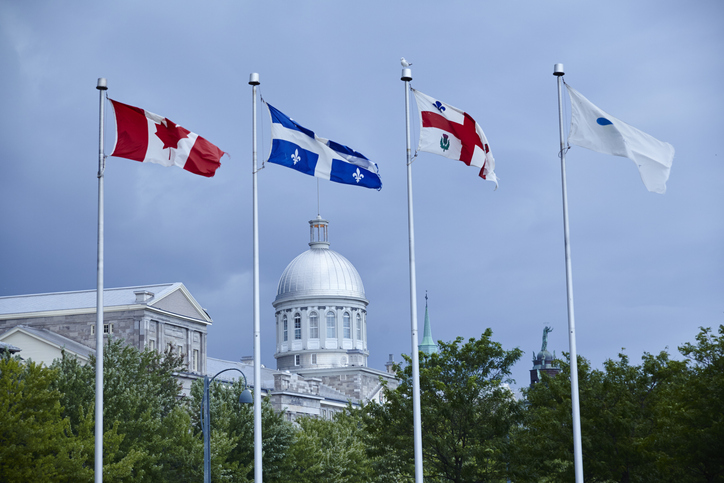Muslim organisations in Canada are taking legal action against a proclamation in Quebec that bans religious activities in schools, arguing that it is unconstitutional.
Six Muslim groups have filed the lawsuit in a Quebec court, contending that the recent provincial edict is discriminatory and violates the Canadian Charter of Rights and Freedoms.
They want the Quebec Superior Court to “declare constitutionally invalid, inapplicable, inoperative, or to annul” the order prohibiting all forms of prayer in public schools.
“The plaintiffs request that a declaratory judgment concerning the interpretation to be given to the principles of laicity and religious neutrality of the state be rendered so that these principles cannot be used to order prohibitions of prayers or other religious practices in public places,” the filing reads.
The ban on prayers in schools was introduced by Quebec education minister Bernard Drainville on April 19, following reports of prayer gatherings on school premises in at least two Canadian schools.
Drainville said prayer rooms goes against Quebec’s policy of secularism, as reinforced by the province’s existing legislation, Bill 21. The bill forbids some government workers from wearing religious symbols, including the hijab.
In 2021, a court in Quebec upheld parts of the secularism law and acknowledged that the law infringes upon Muslim women’s rights.
It added that although it has “serious and negative consequences for all those who wear religious symbols in public”, it ultimately does not violate “the Canadian constitutional architecture.”
Violating “fundamental rights”
The Muslim Association of Canada and the Canadian Muslim Forum, along with four other local organisations, are among the six groups involved in the lawsuit.
In a 22-page motion submitted to the court, the Muslim groups also argued the decree violates the Quebec Charter of Human Rights and Freedoms.
“This is about violating the fundamental rights of minors and adults in terms of their freedom of religion, freedom of conscience, but also individuals’ right of association,” it said.
The groups write that the principle of state secularism is intended to uphold the non-religious nature of the state.
“The resulting obligation of state religious neutrality should not be interpreted in such a way as to favour one religion rather than another or to target, directly or indirectly, one religion rather than another,” said the filing.
Since “this is a complete ban on all forms of prayer and prayer is an essential component of Muslim religious practice, this prohibition discriminates against a group of individuals to the detriment of other groups,” the organisations argue.
In April, Drainville issued a directive forbidding religious activity in schools, vocational training centres, and adult education centres.
The directive requires all educational institutions governed by the Education Act to ensure “that no place is used, in fact or in appearance, for the purpose of religious practices such as open prayers or other similar practices.”
In justifying the directive, Drainville said: “Schools are places of learning, not places of worship.”
Drainville added that Quebec does not intend to completely prohibit prayer and emphasised that students wishing to pray should do so “discreetly” and “silently.”




